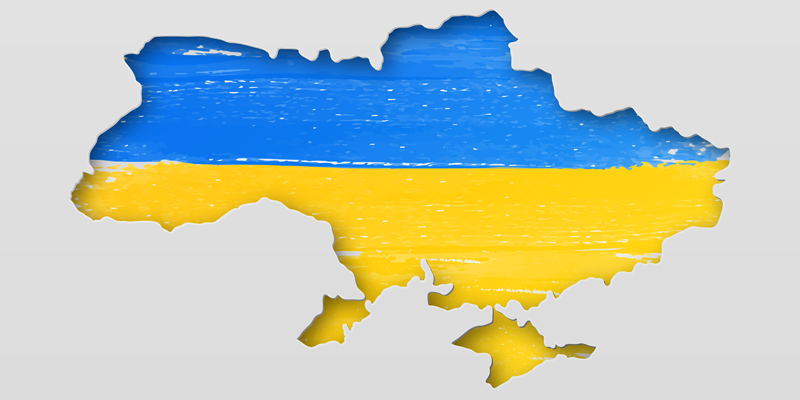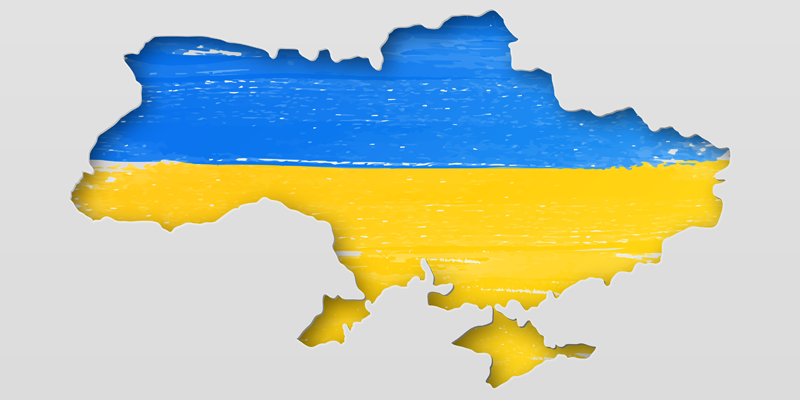Scientific Dimensions of the Ukraine Crisis
As the war in Ukraine wages on, the international physics community continues to discuss actions that might be taken to address the conflict. At a plenary session of the APS April meeting in New York City, a panel of scientists spoke about the current situation, as well as about the history of scientific collaborations between the US, Russia, and Ukraine. Special emphasis was given to relationships that were forged during the end of the Cold War, when scientists on both sides worked to mitigate the threat of nuclear weapons. The general consensus of the panel was to keep supporting Ukrainian scientists as much as possible, while keeping the lines open to Russian scientists.
At the outbreak of the war, there were about 95,000 scientists living in Ukraine. Since the fighting started, thousands have fled to neighboring countries, but roughly 78,000 are believed to have stayed. Ukrainian scientists who remain in Ukraine “are not worrying about the research they can pursue, unless it can help the war effort,” said George Gamota, founder and president of Science & Technology Management Associates in Massachusetts.
Born in Ukraine, Gamota relocated to the US as a child and later became a physicist specialized in low-temperature studies. After Ukraine obtained its independence in 1991, he spent many years developing technological projects and organizing scientific meetings in Ukraine. In his talk, he recounted the efforts that APS made in the mid-1990s to help Ukrainian scientists overcome the sudden loss of financial support due to the breakup of the Soviet Union. That assistance was considered urgent, partly because, overnight, Ukraine became the third largest nuclear arsenal in the world. It wasn’t until 1994 that Ukraine agreed to transfer all its nuclear weapons to Russia, in exchange for guarantees regarding its sovereignty. “Ukraine is the only country so far that has had nuclear weapons and decided to denuclearize,” Gamota said.
Siegfried Hecker from Stanford University spoke about the nuclear dimensions of the conflict in Ukraine. As director of Los Alamos National Laboratory, New Mexico, from 1986 to 1997, he collaborated with Russian scientists to minimize the dangers of nuclear threats. He thinks that the actions of Russian leader Vladimir Putin threaten to destroy the “global nuclear order.” Hecker explicitly pointed to Putin’s February 27 decision to place Russia’s nuclear weapons on “special mode of combat duty.” That nuclear saber-rattling is a break from the long-standing policy of limiting nuclear arms to the role of deterrence. Putin’s actions not only signal a troubling change in attitude toward the use of nuclear weapons, but they also jeopardize efforts to stop the spread of nuclear weapons. “Nonproliferation requires leadership from the main nuclear countries,” Hecker said.
The nuclear order was also shaken by the Russian army’s shelling of Ukraine’s Zaporizhzhya nuclear plant in early March. This attack could have ripple effects on the entire nuclear power industry, Hecker said. Over the years, nuclear plant designs have been modified to reduce the risks from human errors and natural disasters. But Hecker asked, “How do we protect nuclear power stations from military attacks?” He advised reinforcing nuclear structures and negotiating treaties that make nuclear power plants off-limits for military attacks.
One contentious question regarded the relationship with Russian scientists. Gamota suggested looking back to the American attitude toward Nazi scientists. “How did we treat Heisenberg during World War II?” Gamota rhetorically asked. There were no collaborations between American and German scientists, and Gamota thinks that that sort of closing of ties may be warranted now. He read a recent declaration from the National Academy of Sciences in Ukraine, which calls the reported atrocities a “genocide” and places some of the guilt on the Russian intellectual elite for “silently watching this massacre of civilians.”
A different perspective was given by Russian-born economist Konstantin Sonin from the University of Chicago. Earlier this year, he had been spending a sabbatical in Russia and blogging about the political situation, but he left in early March as the conflict erupted. He provided some facts about the shared history of Russia and Ukraine and recounted some heart-wrenching stories about Ukrainian lives that were cut short. He said that reports of Russian support for the war may be overstated. Scientists and other intellectuals risk persecution for protesting the war or even using the word “war,” Sonin said. He suspects that they may be pressured to sign statements in support of Russian military actions.
APS CEO Jonathan Bagger presented a summary of the APS response to the crisis. He described the Society’s commitment to supporting affected physicists, fostering physicist to physicist engagement, and directing sanctions only toward institutions—rather than individual scientists. Bagger said these policy positions were in line with previous Society responses, such as an APS statement in 2002 against boycotting Israeli scientists, which stated “The APS strongly opposes attempts to isolate any scientific community.” As for questions about publishing articles with Russian scientists as authors, Bagger said that APS policy continues to be that all manuscript decisions should be entirely based on scientific merit.
Hecker also struck a conciliatory tone at the end of his talk. During his 57 visits to Russia after the Soviet fall, he witnessed an enormous spirit of cooperation. His counterparts in Russia were well aware of the nuclear dangers, and they—like the Americans—were committed to forging scientific relationships that could help minimize the risks. Hecker said that this cooperation was instrumental in avoiding disasters from loose nukes or mismanaged nuclear materials. He understands the impulse to dump out vodka or ban Dostoevsky. “But don’t shut out Russia’s civil society, of which scientists are a crucial part,” Hecker said. “We must keep our contacts alive wherever possible.”
–Michael Schirber
Michael Schirber is a Corresponding Editor for Physics Magazine based in Lyon, France.





